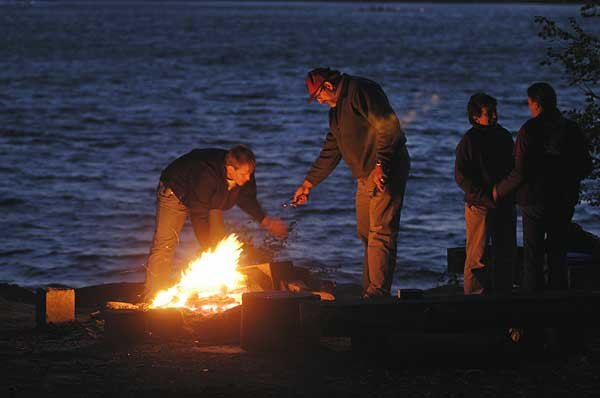The Power of Pause in a World That Never Stops
In a world screaming at men to hustle, fix, or fight, what if the real strength lies in stillness? Masculine spirituality in 2025 isn’t about adopting a monk’s robe or chasing mystical experiences. It’s about reflection, not religion. It’s choosing breathwork over burnout, silence over shouting, and clarity over chaos. This isn’t fluffy self-help nonsense—it’s a call to build inner strength that complements the outer hustle. These seven grounded practices are designed for men who want to stay calm, capable, and in control, no matter what life throws at them.
Masculine spirituality is rising because men are tired of the grind’s empty promises. It’s not about escaping responsibility but about mastering yourself first. Let’s dive into why this shift is happening and how you can harness it with practical, no-nonsense tools.
Table of Contents
1. Why Masculine Spirituality Is Rising in 2025
Men today face relentless pressure. Society demands you be a provider, a problem-solver, a rock—while emotions are often suppressed or ignored. A 2024 study from the American Psychological Association found 73% of men feel overwhelmed by work, family, and social expectations. Burnout is real, and traditional outlets like gym sessions or career wins only patch the surface.
Masculine spirituality offers a deeper solution. It’s not about performative toughness or religious dogma. It’s about cultivating a calm, centered presence that lets you navigate chaos without crumbling. Men are craving this—something that builds resilience from within, not just another external goal to chase.
This rise isn’t about rejecting masculinity but redefining it. It’s about moving beyond the “tough it out” mentality to a place where emotional discipline and mental clarity are as vital as physical strength. In 2025, masculine spirituality is about becoming a man who’s steady under pressure, not just strong on the outside.
2. Breathwork: Control Stress, Don’t Bury It

Stress is a constant for men—deadlines, family demands, or unexpected crises. Breathwork is your first line of defense, a tool to take control without needing an hour or a yoga mat. It’s not about hiding stress; it’s about mastering it in the moment.
Box Breathing is a go-to technique, famously used by Navy SEALs to stay calm in high-stakes situations. Inhale for 4 seconds, hold for 4, exhale for 4, hold for 4. Repeat for 2-3 minutes. It slows your heart rate and grounds you, whether you’re prepping for a tough meeting or unwinding after a chaotic day.
Another option is 4-7-8 Breathing. Inhale for 4 seconds, hold for 7, exhale for 8. Do four cycles. This method, developed by Dr. Andrew Weil, resets your nervous system, reducing anxiety in under 5 minutes. It’s simple, discreet, and works anywhere—your car, your desk, or even mid-argument.
Start with one session daily. Notice how your body feels before and after. Over time, breathwork becomes a reflex, a way to anchor yourself when the world feels like it’s spinning.
3. Stoicism: Building Emotional Muscle
Stoicism isn’t just ancient philosophy—it’s a practical framework for emotional discipline. In a culture that often equates masculinity with suppressing feelings, Stoicism teaches you to feel deeply but act wisely. It’s about turning emotions into fuel, not fire.
Start with daily journaling. Spend 5-10 minutes each night reflecting on your day. Ask three questions: What went well? What could I improve? What’s in my control? This practice, inspired by Stoic thinkers like Seneca, helps you process emotions without being consumed by them.

Another Stoic tool is embracing discomfort. Skip a meal, take a cold shower, or tackle a task you’ve been avoiding. These small challenges build mental resilience, teaching you to stay steady when life gets tough. As Epictetus said, “You have power over your mind—not outside events. Realize this, and you will find strength.”
For deeper dives, read Meditations by Marcus Aurelius. His reflections on duty, adversity, and self-control are as relevant in 2025 as they were in ancient Rome. Start with one page a night—it’s a masterclass in staying grounded.
Stoicism isn’t about being emotionless. It’s about choosing which emotions drive you and which you let pass. Practice it daily, and you’ll build a mental fortress.
4. Silent Mornings or Cold Showers: Your Spiritual Reset
How you start your day sets the tone for everything else. A silent morning is a powerful way to reclaim control before the world demands your attention. No phone, no news, no noise—just 10 minutes of quiet. Sit with a coffee, stare out a window, or step outside. Let your thoughts settle. This isn’t meditation; it’s presence.
Alternatively, try a cold shower. Two minutes of cold water isn’t about proving toughness—it’s about choosing discomfort to wake up your body and mind. Research from the Netherlands (2016) showed cold exposure boosts mood and reduces stress hormones. It’s a quick reset that builds self-respect and mental clarity.

Pick one: silence or cold water. Do it for a week. You’ll notice a shift in how you carry yourself through the day—calmer, more deliberate, and less reactive.
5. Grounding Meditation: Clarity Without the Fluff
Meditation often gets a bad rap among men, conjuring images of incense and chanting. But grounding meditation is different—it’s practical, focused, and built for clarity, not mysticism. It’s about training your mind to stay present, not chasing enlightenment.
Here’s a simple 5-minute meditation you can do anywhere:
- Sit upright, feet flat on the floor, hands resting on your thighs.
- Close your eyes or soften your gaze to a point in front of you.
- Breathe deeply through your nose, counting each exhale up to 10, then start over.
- When thoughts pop up (and they will), acknowledge them without judgment and return to counting.
- Finish with one deep breath, feeling your feet grounded to the floor.
This practice sharpens focus and reduces mental noise. Apps like Waking Up by Sam Harris or Othership offer guided meditations with a no-nonsense, masculine tone. They’re designed for men who want results, not spiritual jargon.

Commit to 5 minutes daily for two weeks. You’ll start noticing subtle shifts—less reactivity, more patience, and a sense of control that carries into your work and relationships.
6. Walk-and-Reflect: Let Your Mind Wander
In a world of constant notifications, unplugging is revolutionary. A walk-and-reflect ritual is exactly that: 20-30 minutes of walking without headphones, podcasts, or distractions. Ideally, find a park or trail, but a quiet street works too. Let your mind wander. Don’t force solutions or insights—just observe your thoughts and surroundings.
Notice the crunch of leaves, the rhythm of your steps, the air on your face. This isn’t about “thinking hard” but creating space for clarity. A 2014 Stanford study found walking boosts creative problem-solving by 60%. Ideas and answers often surface when you stop chasing them.
Make this a weekly habit. Schedule a walk after a tough day or during a quiet weekend morning. It’s a low-effort way to process emotions, gain perspective, and reconnect with yourself.
7. Fire Circles and Solo Retreats: Reconnect Through Ritual
Men have always gathered around fires to share stories, challenges, and wisdom. In 2025, fire circles are making a comeback as spaces for authentic connection. These aren’t therapy sessions—they’re raw, real conversations where men speak openly without judgment. Organize a campfire with friends, or join a local men’s group. No fire? A hike, barbecue, or even a coffee meetup can serve the same purpose.

Alternatively, embrace solo retreats. A 24-hour “no inputs” challenge—no phone, no screens, just you and a notebook—can be transformative. Spend it in nature if possible: camp, hike, or sit by a lake. A 2023 study in Nature found that just 24 hours in natural settings reduces stress markers by 20%. If a full day feels daunting, start with 4 hours of uninterrupted solitude.
These rituals—whether communal or solo—strip away distractions and reconnect you with your core. They’re not escapes; they’re anchors. Try one fire circle or solo retreat this month. You’ll come back sharper, clearer, and more grounded.
Stillness Is Strength, Not Weakness
Masculine spirituality in 2025 isn’t about kneeling, praying, or chasing transcendence. It’s about standing tall, fully present, and in command of your energy. In a world that glorifies hustle, men who can pause, breathe, and think clearly will lead—not just in business or fitness, but in life itself.
These seven practices—breathwork, Stoicism, silent mornings, grounding meditation, walk-and-reflect rituals, fire circles, and solo retreats—are tools to build that inner strength. They’re not about adding more to your plate but stripping away what clouds your focus. Start small: pick one practice and commit to it for a week. Track how it shifts your mindset, your energy, your decisions.
The modern world rewards men who can move fast but honors those who can stand still. In 2025, masculine spirituality is about owning that stillness—because true power doesn’t shout; it’s steady, quiet, and unshakable.
👉 Ready to build a spiritual practice that fits your life? Subscribe to MindGearMen for grounded guides on breathwork, reflection, and daily rituals that strengthen your inner core, not just your outer hustle. Join thousands of men redefining strength in 2025—sign up today and start with our free 7-day breathwork challenge. You can also read our previous post on “Fireside Gathering Guide: 7 Bold Steps to Hosting the Ultimate No-Phone Night for Men“


